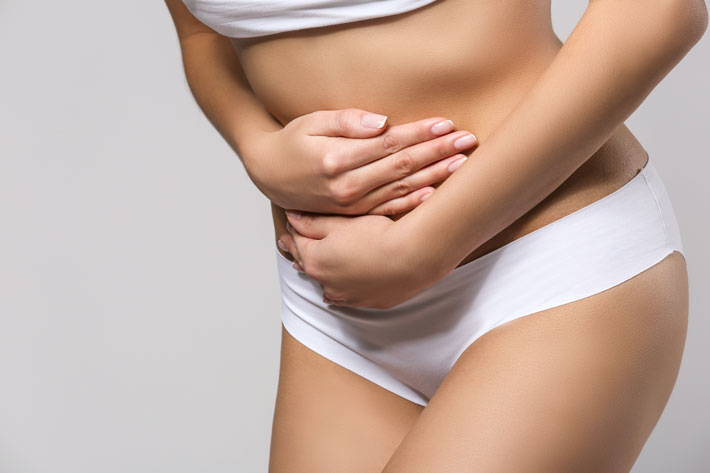What is Endometriosis?
Endometriosis is caused by abnormal growth of tissue outside the uterus. Endometrial tissue is supposed to be contained to the lining of the uterus and when it grows outside the uterus, it can cause a host of issues. Though endometriosis is most commonly found in the lower abdomen, it can on rare occasion present elsewhere in the body.
The direct cause of endometriosis is unknown, though multiple factors have been linked to it. One of the most widely believed theories is that menstruation plays a role in causing endometriosis. The process is referred to as retrograde menstruation and occurs when blood, along with uterine lining, flows into the abdominal cavity. Many women have some degree of retrograde menstruation, but only a small percentage will get endometriosis. There may be an immune system connection here. Additionally, endometriosis has a genetic link and if women in your family suffer from endometriosis, you have a greater chance of developing the condition yourself.
Endometriosis affects women of all age groups, with higher rates in women between 20-40 years old. Obesity may be linked to a greater risk of developing endometriosis, and women who have not given birth are also at higher risk.
What are the symptoms?
Symptoms highly vary from woman to woman and may include:
-
Pain in the pelvis, lower back, abdomen and legs
-
Dyspareunia (pain during sexual intercourse)
-
Pain during bowel movements
-
Headaches
-
Infertility (20-40% of women with infertility have endometriosis)
-
Blood in urination and feces
-
Diarrhea or constipation
-
Fatigue
-
Low-grade fever
-
Decreased energy levels
-
Nausea and vomiting
Pain is the most common symptom experienced by women with endometriosis. When a woman with endometriosis has her period, she bleeds from both the cells and tissues inside her uterus as well as from the cells and tissues outside her uterus. Blood in other organs, particularly the abdomen, can cause inflammation and pain. Additionally, scar tissue may develop and be painful. Not only can endometriosis cause more painful periods, but it will also stimulate heavier bleeding. Periods may be heavier and also longer than normal.
When should you seek treatment? How is Endometriosis treated?
Most women seek treatment for endometriosis when they experience pain or if they are have encountered fertility issues. Endometriosis is diagnosed by laparoscopically taking a sample of a suspected endometriosis lesion.
The most common treatment for endometriosis is anti-inflammatory over-the-counter medications (NSAIDs), such as ibuprofen. Somes hormonal treatments such as oral contraceptive pills can also provide relief. Aromatase inhibitors and gonadotropin-releasing hormone (GnRH) modulators are also common hormone therapies used for treating endometriosis. If a woman with endometriosis is trying to conceive, there are medications available to help boost her fertility.
Sometimes surgery is recommended in the treatment of endometriosis. Not just a diagnostic tool, laparoscopic surgery can be used to remove or burn off endometriosis lesions found outside the uterus. When endometriosis tissue has caused scar tissue, surgery can also remove the scar tissue. Surgery can reduce the pain associated with endometriosis and may help fertility. For women not concerned with their fertility, it may be recommended to remove her ovaries or have a complete hysterectomy.
Not to be overlooked, there are natural, home remedies that may provide relief from the pain associated with endometriosis. Many women feel their symptoms from endometriosis decline when they get plenty of exercise, stay on healthy diet, and use a simple heating pad for relief.
Endometriosis should not be ignored. If you are experiencing unexplainable pain or having a hard time conceiving, or if you have any other concerns about endometriosis please contact Kansas City ObGyn to schedule an appointment at (913) 948-9636 or This email address is being protected from spambots. You need JavaScript enabled to view it..







